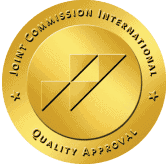You deserve compassionate, evidence-based treatment that addresses both your physical dependence and underlying anxiety concerns. Breaking free from Xanax addiction is challenging, but with professional support, you can reclaim control of your life and discover healthier ways to manage anxiety.
Professional treatment centers understand that Xanax addiction affects every aspect of your daily life. You don’t have to face this alone – specialized care is available to help you safely overcome dependence while addressing the root causes of your anxiety.
What are the warning signs of Xanax addiction?
You may be struggling with Xanax addiction if you recognize these concerning patterns in your life. Benzodiazepine dependence often develops gradually, making it difficult to recognize when prescription use has crossed into addiction territory.
Physical and behavioral signs include:
- Taking higher doses than prescribed or using Xanax more frequently
- Feeling unable to function normally without the medication
- Experiencing anxiety or panic when your supply runs low
- Using multiple doctors or pharmacies to obtain prescriptions
- Taking Xanax for reasons beyond anxiety or panic relief
- Continuing use even when it causes problems in relationships or work
- Spending significant time thinking about or obtaining Xanax
- Neglecting responsibilities or activities you once enjoyed
- Experiencing memory problems, confusion, or mood swings
- Feeling withdrawal symptoms when missing doses
Psychological indicators often include:
- Increased tolerance requiring higher doses for the same effect
- Anxiety or irritability between doses
- Depression or emotional numbness
- Difficulty concentrating or making decisions
- Social isolation or withdrawal from family and friends
- Lying about medication use or hiding pills
- Feeling guilty or ashamed about your Xanax use
- Unsuccessful attempts to reduce or stop using
What makes Xanax addiction particularly dangerous?
Xanax addiction presents unique risks that require immediate professional attention. As a short-acting benzodiazepine, Xanax creates rapid tolerance and physical dependence, often within weeks of regular use.
The dangers include severe withdrawal complications. Benzodiazepine withdrawal can be life-threatening, potentially causing seizures, delirium, and cardiovascular complications. Approximately 5.3 million adults misuse benzodiazepines annually, with young adults aged 18-25 showing the highest abuse rates at nearly 11%.
Overdose risks increase dramatically when Xanax is combined with other substances. Benzodiazepine-related deaths have increased by 917% over two decades, reaching 12,499 deaths in 2021. The combination of Xanax with alcohol or opioids significantly multiplies fatal overdose risk.
Cognitive impairment affects daily functioning. Long-term Xanax use can cause persistent memory problems, confusion, and difficulty with decision-making. These effects may continue even after stopping the medication.
Professional treatment centers recognize that attempting to quit Xanax without medical supervision is extremely dangerous. You need specialized care that addresses both the physical dependence and psychological aspects of addiction.
What therapeutic approaches are most effective for Xanax addiction?
Evidence-based therapeutic interventions form the foundation of successful Xanax addiction treatment. Professional treatment centers use proven methodologies that address both addiction and underlying anxiety disorders.
Cognitive Behavioral Therapy (CBT) helps you identify and change thought patterns that contribute to both anxiety and substance use. You’ll learn practical coping strategies for managing anxiety without relying on medication.
Dialectical Behavior Therapy (DBT) teaches emotional regulation skills and distress tolerance techniques. These skills are particularly valuable for managing the intense emotions that often trigger Xanax use.
Medication-assisted treatment may include non-addictive alternatives for anxiety management. Healthcare providers might prescribe antidepressants, buspirone, or other medications that address anxiety without addiction potential.
Trauma-informed therapy addresses underlying traumatic experiences that may contribute to both anxiety and substance use. Many individuals with Xanax addiction have histories of trauma that require specialized treatment approaches.
Group therapy provides peer support and shared experiences with others facing similar challenges. You’ll benefit from the encouragement and insights of others who understand the complexities of benzodiazepine addiction.
Family therapy helps repair relationships damaged by addiction while educating loved ones about the recovery process. Strong family support significantly improves long-term recovery outcomes.
What can you expect during Xanax withdrawal?
Understanding the withdrawal process helps you prepare for recovery and reinforces the importance of professional medical supervision. Xanax withdrawal follows a predictable timeline, but individual experiences vary based on usage patterns and personal factors.
Early withdrawal symptoms typically begin 6-12 hours after your last dose. You may experience increased anxiety, irritability, and physical discomfort as your body begins adjusting to functioning without the medication.
Peak withdrawal symptoms usually occur during days 1-4 and may include:
- Severe anxiety and panic attacks
- Insomnia and sleep disturbances
- Muscle pain and tension
- Sweating and tremors
- Nausea and digestive issues
- Headaches and dizziness
- Sensitivity to light and sound
- Difficulty concentrating
- Mood swings and irritability
- Heart palpitations
The stabilization phase occurs during days 5-14, when physical symptoms begin subsiding. However, psychological symptoms like anxiety and insomnia may persist, requiring ongoing therapeutic support.
Post-acute withdrawal syndrome (PAWS) can last weeks or months, involving lingering anxiety, depression, and sleep difficulties. Professional treatment centers provide ongoing support to help you navigate this extended recovery phase.
Medical supervision ensures your safety throughout withdrawal. Healthcare providers monitor your vital signs, adjust medications as needed, and intervene immediately if complications arise.
How do treatment centers address co-occurring anxiety disorders?
Effective Xanax addiction treatment must address underlying anxiety disorders that often lead to initial prescription use. Treatment centers use integrated approaches that treat both addiction and mental health conditions simultaneously.
Comprehensive psychiatric evaluation identifies specific anxiety disorders such as generalized anxiety disorder, panic disorder, or social anxiety. You’ll receive an accurate diagnosis and targeted treatment for your particular anxiety condition.
Non-addictive medication options help manage anxiety without perpetuating dependence. Healthcare providers may prescribe SSRIs, SNRIs, or other medications that effectively treat anxiety without addiction potential.
Anxiety management techniques become essential life skills during recovery. You’ll learn breathing exercises, progressive muscle relaxation, mindfulness meditation, and other evidence-based anxiety reduction strategies.
Exposure therapy helps you gradually face anxiety-provoking situations without relying on medication. This therapeutic approach builds confidence and reduces avoidance behaviors that maintain anxiety disorders.
Lifestyle modifications support both addiction recovery and anxiety management. Treatment centers teach stress reduction techniques, sleep hygiene, exercise programs, and nutritional strategies that naturally reduce anxiety levels.
What role does family support play in Xanax addiction recovery?
Family involvement significantly improves treatment outcomes and long-term recovery success. Treatment centers recognize that addiction affects entire family systems and provide comprehensive support for loved ones.
Family education helps relatives understand the complexities of benzodiazepine addiction and the recovery process. Loved ones learn how to provide appropriate support without enabling continued use.
Communication skills training teaches healthy interaction patterns that support recovery. Families learn to express concerns constructively while maintaining appropriate boundaries.
Codependency issues often develop when family members try to manage or control the addiction. Professional counselors help families recognize and address these unhealthy relationship patterns.
Crisis intervention planning ensures family members know how to respond appropriately to potential relapse situations or medical emergencies related to withdrawal.
Support group participation connects families with others facing similar challenges. Organizations like Nar-Anon provide ongoing support and guidance for families affected by addiction.
Contact Assure Recovery
Don’t wait to get the help you need for Xanax addiction. Professional treatment can help you safely overcome dependence while addressing underlying anxiety concerns. You deserve compassionate care that treats both your addiction and mental health needs.
Call Assure Recovery today at (833) 530-0291 to speak with addiction specialists who understand the complexities of benzodiazepine dependence. Help is available now, and you don’t have to face this challenge alone.



